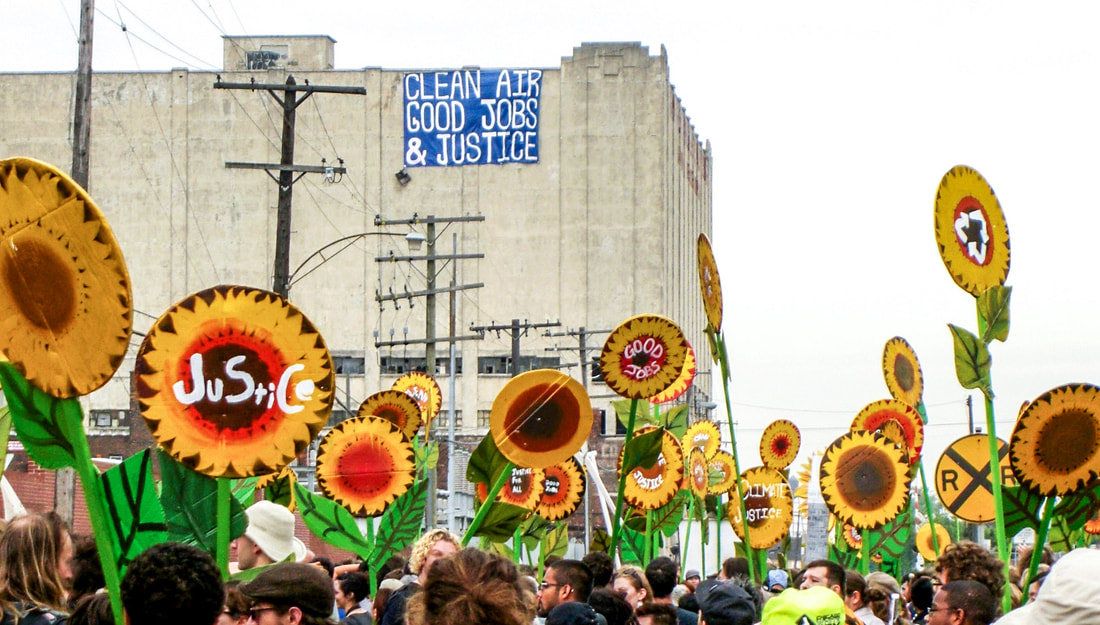|
Photo by Marcus Johnstone - Creative Commons License Over the past decade, there has been growing awareness that the people who live, work, and play in America's most polluted environments are often people of color and with low income. Moreover, there has been overwhelming evidence that this is neither coincidence nor accident: historic, systemic inequities have allowed these communities to be targeted for landfills, industrial plants, and truck depots. The people who are most impacted already know this, and the American Littoral Society is taking the time to learn from them and other stakeholders across the region. It has become apparent that the issue goes beyond how to mitigate the effects of superfund sites and dirty power stations on surrounding neighborhoods. It is the prevention of stormwater pollution, protection from floods and climate change, and access to local waterways and beaches. Also, much of our restoration work takes place on ancestral Lenni Lenape lands and many of the schools with which we partner are part of urbanized areas at the greatest risk from the threats of climate change. As a result, the Littoral Society is focusing beyond the concept of environmental justice and working to make Diversity, Equity, Inclusion and Justice (DEIJ) part of everything we do. We want our work to both uplift the environment and to elevate the efforts of Black, Latino, Indigenous and Native People, Asian-Americans and Pacific Islanders, members of religious minorities, LGBTQ+ people, and people with disabilities who also care for the coast.
How are we doing this? By putting equity into action. In response to issues identified through strategic planning, the Littoral Society has made a commitment to becoming an anti-racist organization. As part of that we have created an internal staff committee to examine our own organization, culture, and practices. In addition, we’ve enlisted the help of the professionals at Guerrera Strategies, who are helping us to create a long-term, sustainable plan for increasing equity within the Society and along the coast. We, as an organization, are also members of the Coalition for the Delaware River Watershed (CDRW) and are actively participating in that coalition's DEIJ workgroup. Through this initiative, we worked with the Coalition and its consultants to develop a DEIJ Lens Screening Tool. This tool acts as a filter to help screen out any actions or initiatives that produce harm and/or exclude minority groups. The tool is to help ensure that our actions and outcomes reflect our original intentions. The Littoral Society has also developed and partnered with projects and programs that create opportunities for all people to participate in our efforts to care for the coast. Our R-Corps and Veterans Internship Program provide green jobs training and work experience for people who are looking for a pathway into the field. The Sea Quest program provides an opportunity for youth in underserved communities to get “hands on and feet wet” in their local waterways. Our SAFE program fights for the investment in our water infrastructure so that the Delaware River is clean and useable throughout its entire span, not just the portions that flow through wealthy communities and landscapes. Finally, we advocate for beach access for all people and fight developers who seek to privatize access to the coast. We know we still have much more to learn and to do, but we believe this to be, at least in part, an act of justice. Learn more about how the Littoral Society is working to make justice an integral part of everything we do. Comments are closed.
|
Archives
July 2024
Categories
All
|


